Night Tree: An interview with Lizzy Maries, digital producer at Pavilion Dance South West
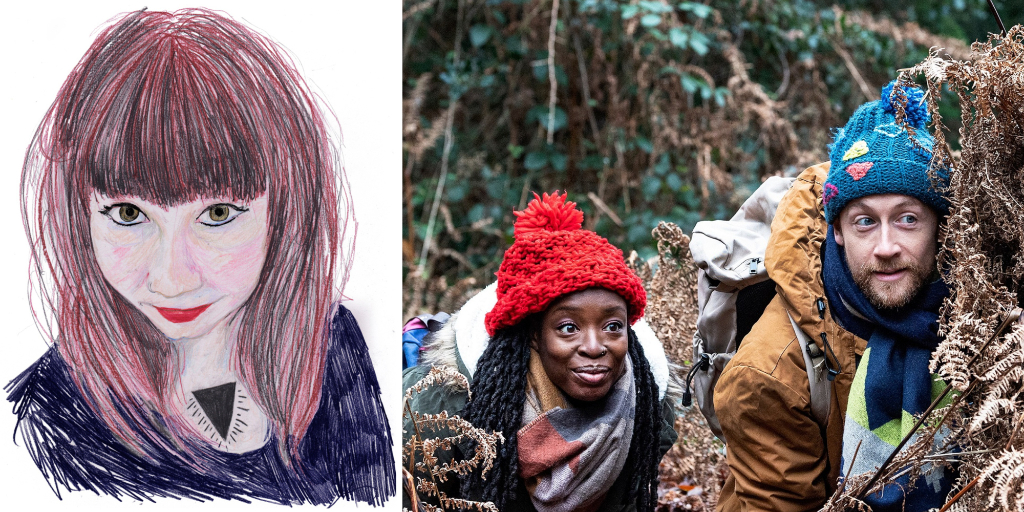
Get ready for a magical woodland adventure this weekend! Pavilion Dance South West (PDSW) have teamed up with Second Hand Dance to bring to our screens Night Tree, a family-friendly story about the importance of nature. Based on Eve Bunting’s book of the same name, the performance is complemented by free print-at-home activity packs that teach the whole family practical skills – from making a bird feeder to the recipe for a yummy hot chocolate. The company is also streaming Ceilidh lessons on Saturday and Sunday, and viewers in Bournemouth can order a vegan picnic straight from PDSW’s kitchen! We spoke to Lizzie Marie, the digital producer at PDSW, to find out more about the show.
Why was Night Tree chosen for this project?
Second Hand Dance, who created the work based on Eve Bunting’s book, brought the live performance of Night Tree to our theatre in December 2018. It was a truly stunning show – full of magic and animals and it had a real sense of a wintry forest. Families loved it. Second Hand Dance are one of the PDSW supported artists and they wanted to make a film version, so knowing how great the live show was, we had to get on board.
Why do you think it’s important for children to learn to care for and appreciate nature at a young age?
It’s important because nature teaches us so much and it is ever-changing: nature is alive. For children, that’s super exciting and teaches them just how varied the world around them can be. The show teaches about choice, and considering the impact of our actions. It’s about taking the right steps: we may accidentally dislodge a bird’s nest, but we can also create a bird feeder.
How do you hope people will be inspired by Night Tree?
At a time when we are limited in what we can do and where we can go, I hope Night Tree ignites a bit of wonder about the wild world around us, about owls and deer, trees and leaves. Being outside is a good place to be at the moment (as long as you wrap up!) so I hope it brings a bit of magic to people’s trips outside – either in the woodlands or just round your block!
Tell us about what this film looks like and how it was made?
This film is a sensory treat. You’ll feel the crunchy leaves and sense the squishy mud. Second Hand Dance are particularly good at bringing focus to details about how things feel.
It was filmed safely last year under COVID-19-secure conditions outside.
How has Pavilion Dance South West invested in their digital output to create experiences like this?
As one of the nation’s leading dance venues outside London, PDSW have pushed the boundaries of what’s possible in the digital sphere. We have explored new ways to give audiences an opportunity to engage with dance at home, to connect to new communities and to beat online fatigue.
At the start of the pandemic, PDSW quickly adapted to the hunger for things to do and online entertainment. In less than a year, we have broadcast online over 45 live Zoom dance classes, 15 different styles of dance classes (free to view on YouTube), ten online workshops, a five-part podcast series, a month-long dance and technology forum, and 39 streamable performances, [as well as] being among the first to offer free-to-view dance premieres in the initial lockdown. We’ve invested heavily in creating a broad digital programme that provides audiences with tailored content.
How has PDSW worked around the limitations of lockdown to continue to give performers and creators a platform?
Like most people, we turned to digital like never before – but we really focused on offering experiences rooted in our PDSW community. For example, our Parkinson’s Dance classes used to happen in our building every Friday, and it’s a magnificent group of people who come together for a really good chat before and after the class. We’ve made sure they still get that experience and time over Zoom.
We have two commissions out at the moment for dance creators to make more work with us, for children and their grown-ups. We’re also focusing on creating various opportunities for freelancers to work with us, as we know the need is there.
Lockdown is limiting and it’s also really important that we keep artists and staff and audiences safe. But if we can support people to undertake online R&D, or create live work safely, then we will make these things happen.
Alongside the film, there are a range of activities that families can do at home. What was the inspiration behind the planning of this multi-sensory experience?
The Night Tree films are so involving, and we know families will enjoy sitting down together and going on that adventure with us. We were also aware that some people are conscious of screen time, so we wanted options to make this experience more layered. Families can cut out a forest floor to scatter around themselves as they watch, they can make a bird feeder or take a live dance workshop with the film characters, and they can even, if they’re living in Bournemouth, order a woodland picnic of brownies and hot chocolate mix to their door to enjoy as they watch.
Ceilidh is a very social dance form. How would you describe ceilidh and how do you teach it in a lockdown environment?
Ceilidh is the Gaelic word for gathering. It refers to a social event with folk music, dancing and storytelling.
Traditionally a Ceilidh is a social gathering and this is a strong element in the Night Tree activities that we’re hosting with Second Hand Dance. The aim is to bring children and their grown-ups together for some fun dance-related activities.
We learned from our early days of creating classes online that we need to think of the space the audience may be working in, and now we adapt the class accordingly to ensure everyone can join in and get the most out of the sessions. We’ve also developed a whole new approach to classes, including leaving time for people to engage socially online before the class begins, as well as offering a guide to dancing safely at home!
Do you think digital programming will continue to be popular in a post-COVID world?
Yes, it will. We know we have audiences who experience barriers to coming to the venue in person, before and beyond COVID-19. Live performances at 7pm will always be hugely loved, but digital programming can be a great leveller – available to a new parent at home with a baby, or to someone living with anxiety for example. What we, as producers and programmers, need to consider is who digital keeps out and why. Who doesn’t have strong Internet connection in rural Dorset? Is there something we can post them? Does our digital work offer closed captions? BSL? Audio Description? That’s our task.
What’s next for PDSW?
Digital experiences that have a sensory element you can hold/smell/feel in your own home! More work for children and their grown-Ups. More listening and responding to what the sector needs as we move into unknowns.
We’re about creating, and when there’s creativity, there’s hope!
Sophia Moss
Photo: Foteini Christofilopoulou
Portrait: Louise Byng
Night Tree is available to stream from 19th February until 21st February 2021. For further information or to book visit Pavilion Dance South West’s website here.


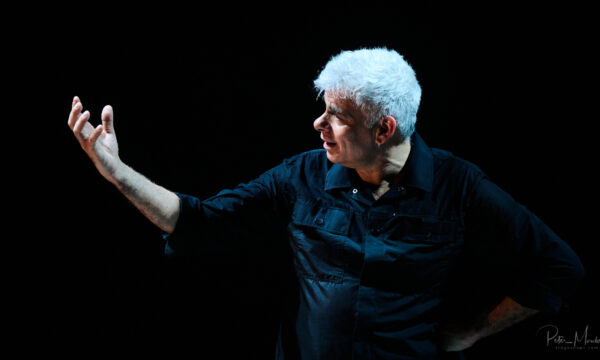
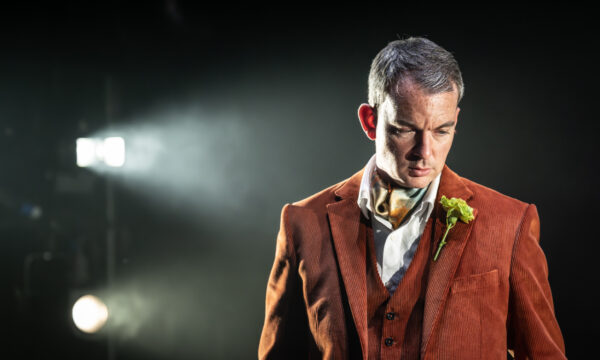
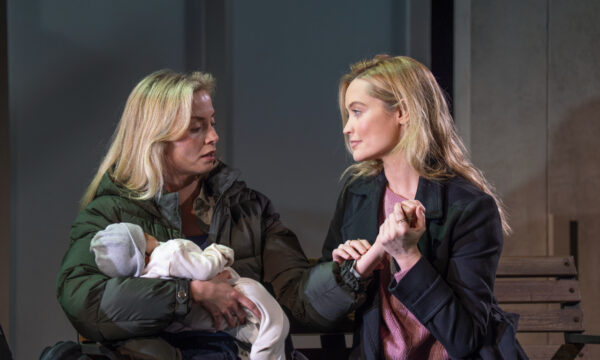
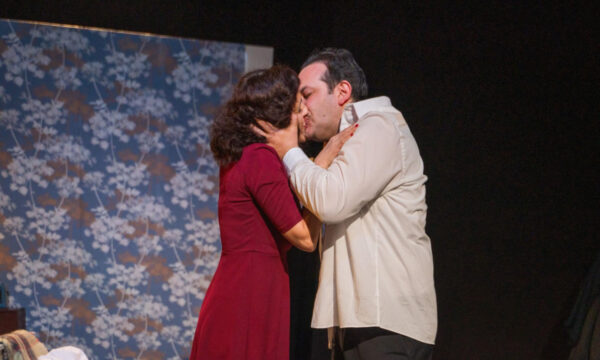
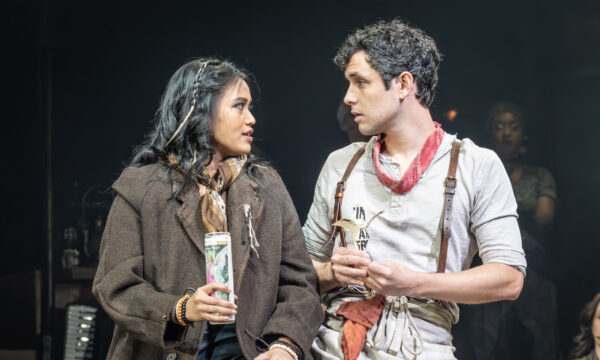
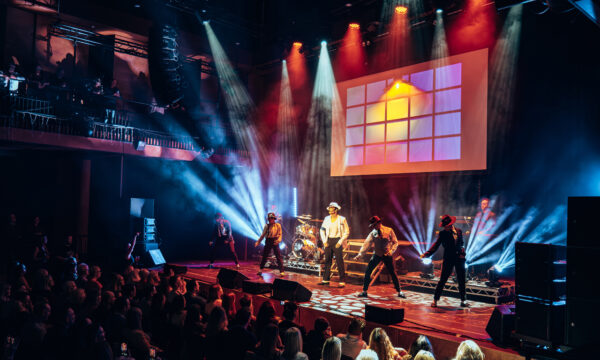

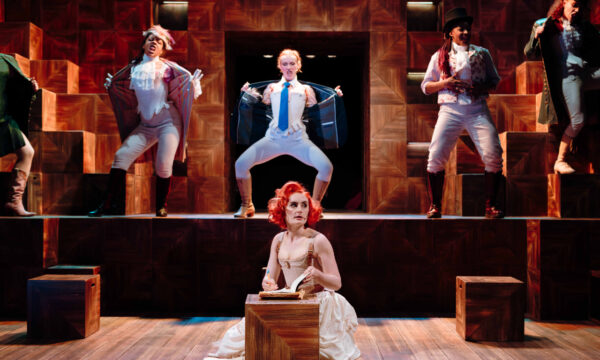











Facebook
Twitter
Instagram
YouTube
RSS